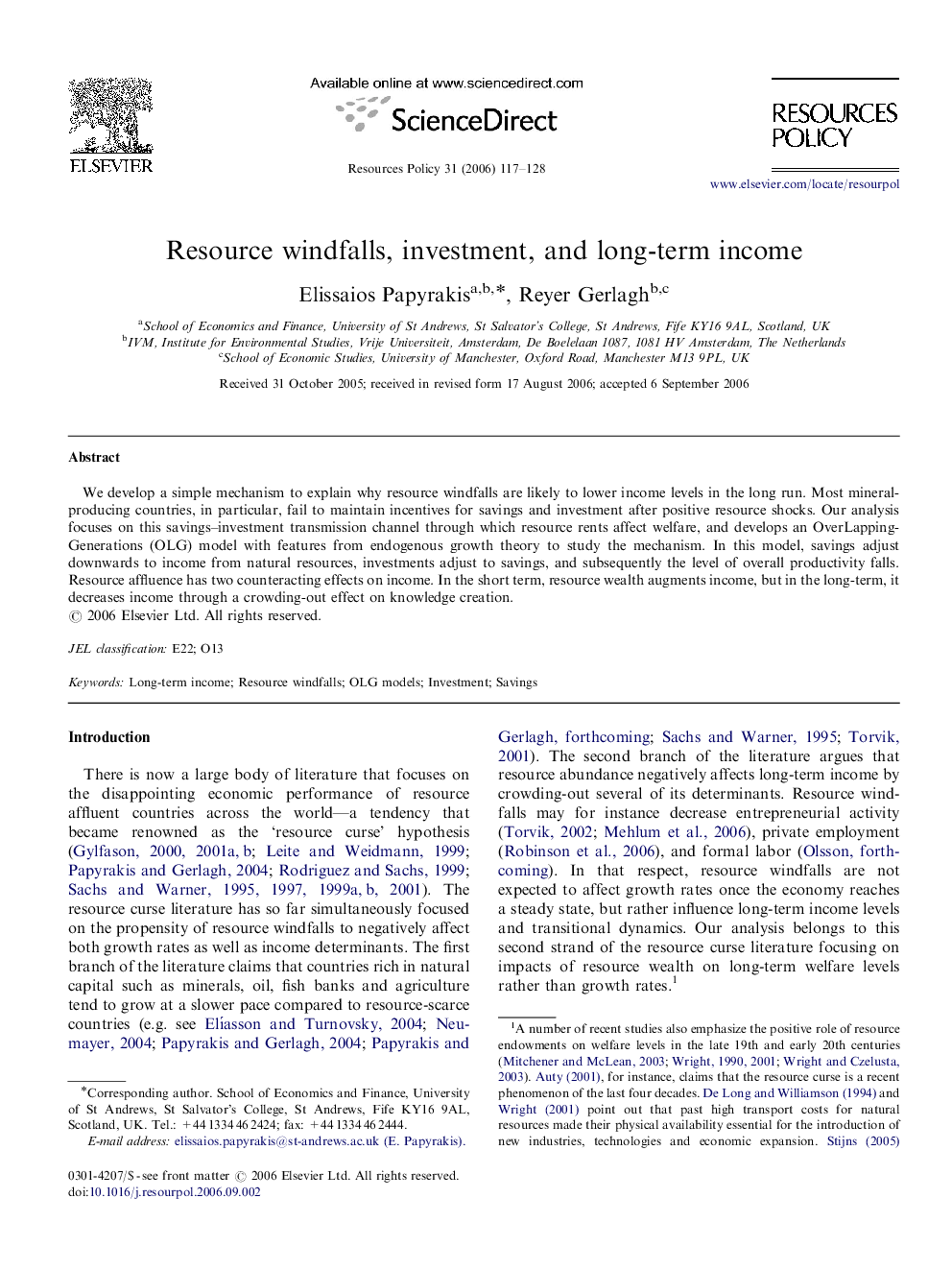| Article ID | Journal | Published Year | Pages | File Type |
|---|---|---|---|---|
| 986456 | Resources Policy | 2006 | 12 Pages |
We develop a simple mechanism to explain why resource windfalls are likely to lower income levels in the long run. Most mineral-producing countries, in particular, fail to maintain incentives for savings and investment after positive resource shocks. Our analysis focuses on this savings–investment transmission channel through which resource rents affect welfare, and develops an OverLapping-Generations (OLG) model with features from endogenous growth theory to study the mechanism. In this model, savings adjust downwards to income from natural resources, investments adjust to savings, and subsequently the level of overall productivity falls. Resource affluence has two counteracting effects on income. In the short term, resource wealth augments income, but in the long-term, it decreases income through a crowding-out effect on knowledge creation.
